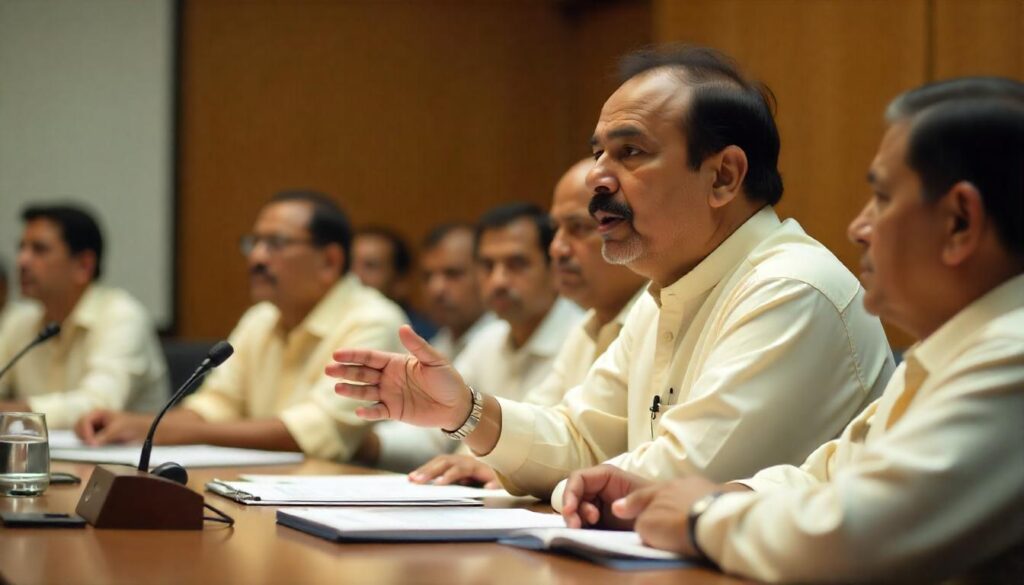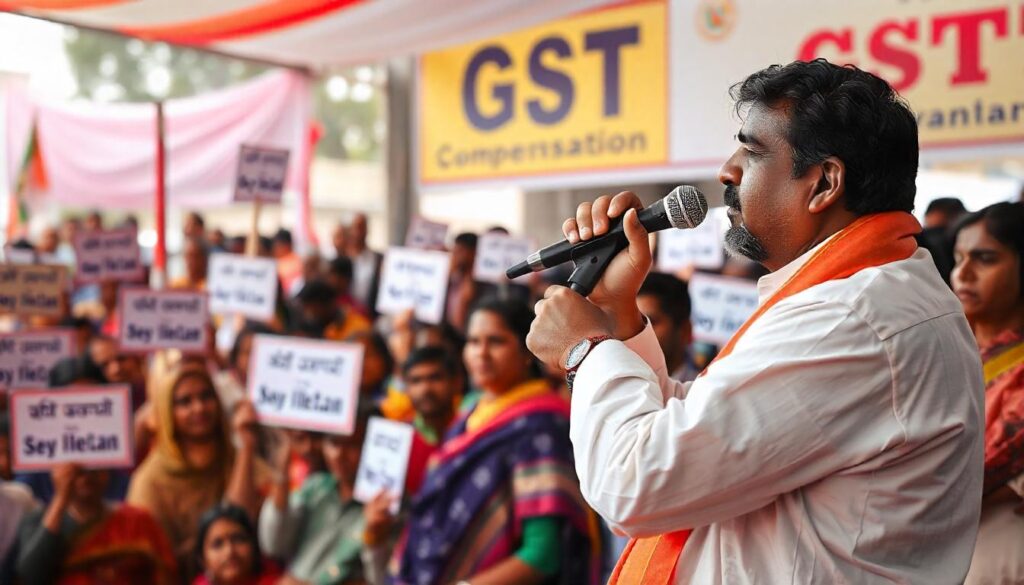The Union Budget 2025 has stirred up a political storm in Karnataka. Chief Minister Siddaramaiah has openly accused the Centre of unfairly allocating GST compensation grants. He believes that Karnataka isn’t receiving its fair share of financial support, despite its significant contribution to the national economy. This claim has reignited tensions between the state and central governments.

What’s the Issue About?
Siddaramaiah has raised concerns that Karnataka isn’t getting the same level of GST compensation as other states, even though it plays a vital role in the country’s economy. The CM argues that Karnataka’s rapidly growing economy and increasing infrastructure needs should warrant a more substantial share of the GST grants. He insists that this discrepancy is unfair and goes against the principles of equal treatment for all states.
The Centre’s Response
The Union Government has rejected these accusations. The Finance Ministry clarified that the GST compensation distribution follows a formula approved by the GST Council. According to the Centre, this formula is designed to be transparent and fair. They emphasize that no state is being treated unfairly, and the system remains consistent and objective.
How Could This Affect Karnataka?
If Karnataka’s claims hold any truth, the state could face major challenges. Reduced GST grants might force the state to delay or scale back essential projects, such as infrastructure development and social welfare programs. Experts warn that this reduction could slow down Karnataka’s economic growth, potentially leaving the state’s future development at risk.

Political Consequences: What’s at Stake?
This issue also has political ramifications. Opposition parties have rallied behind Siddaramaiah, accusing the Centre of favoring BJP-led states. With elections approaching in Karnataka, this controversy is likely to become a key talking point, further intensifying the political rivalry between the state and the Centre.
Breaking Down the GST Compensation Dispute
What is the GST Compensation Cess?
The GST compensation cess was introduced to ensure that states wouldn’t lose out on revenue when the GST system was implemented. It aimed to protect state finances during the transition phase. This safety net has become crucial for many states, including Karnataka.
Why Are States Concerned About Decreasing Compensation?
States, including Karnataka, have voiced their concerns over the decreasing amount of GST compensation they’re receiving. With the Centre planning to phase out the compensation cess by mid-2025, states fear they’ll face financial difficulties. If compensation reduces significantly, states may struggle to maintain key services and fund development projects.
Phasing Out the GST Compensation Cess
The Centre’s decision to phase out the GST compensation cess by 2025 has added more uncertainty. Many states, including Karnataka, worry that losing this financial cushion will put their development plans in jeopardy. This decision is fueling the ongoing debate about fair compensation.
What Needs to Happen Next?
To resolve the issue, the Centre and the states need to engage in meaningful discussions. Revising the GST compensation formula could ensure that states receive a fair share of resources. A balanced approach will help foster growth and prosperity across the country, benefiting all states, including Karnataka.
This debate serves as a reminder of the challenges that come with balancing national and regional needs. Fair resource-sharing is essential to ensure long-term growth and development for every state in India.
stay tuned for more updates


